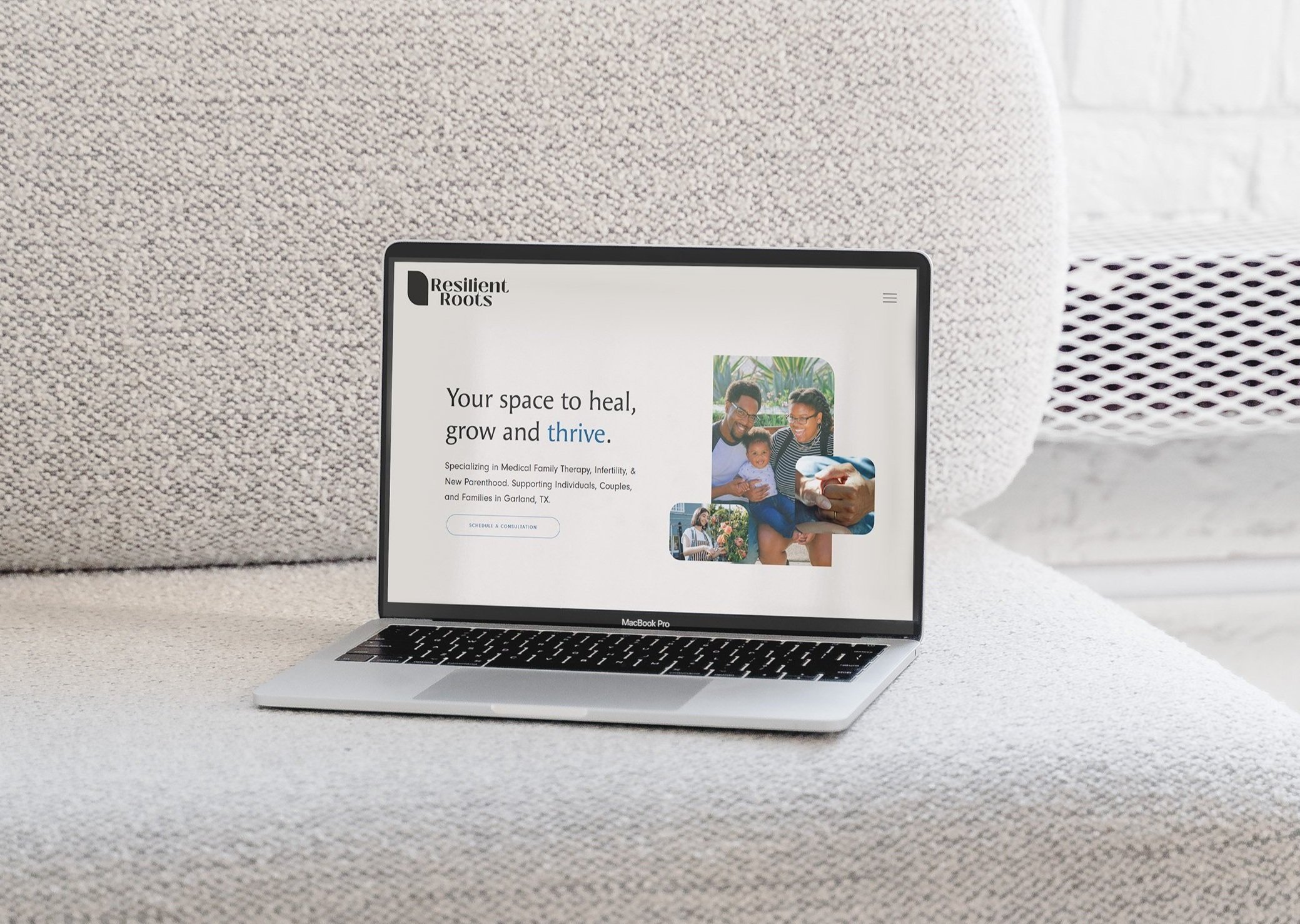How to Write Less & Say More with Your Counseling Website Design
Design & visuals on your site matter more than words.
People only read about 20% of what you write on your website. Yep. That’s it.
As someone who has spent countless hours helping therapists craft perfect paragraphs for their websites, trust me when I say I was not happy to hear that folks are just skimming headlines. BUT since I’ve digested this, it’s been freeing to write less and focus on making the words count.
So, if potential clients aren’t reading much of your website, what are they looking at??
Well, another “fun” fact for you:
It takes less than one second for people to decide whether they like the look of your website.
AND those first impressions are based mainly on the design* of the site, not the written content. Also, you have about 10 seconds to engage a person before they decide whether to exit your site or not. Further, these super-quick first impressions affect how long people stay on your site, how much they trust you, and whether they decide to work with you.
Design is not about making something pretty–it’s a form of emotional communication.
The old saying “a picture is worth a thousand words” holds up for a reason. Photography, color, typography, layout, and even animation evoke emotion from us on conscious and unconscious levels.
Look at these design elements below and notice how quickly you get a feel for them.
For example, think of how these two photos make you feel:
Very similar subjects in these photos but completely different emotions, right? And it’s not just the look on their faces; even the colors and lighting in each image speak to us.
How about these two color palettes?
Same number of colors, very different feel. The first feels reliable, grounded, and earnest, and the second evokes fun, summertime, and high energy.
What emotions or associations do they bring up for you? Try to think less of whether you like them or not, but maybe why you like them or don’t.
And what about these different fonts?
The first is more expected and traditional, which is not a bad thing at all! Consumers tend to be drawn toward the familiar. These fonts convey a sense of reliability and quiet confidence. The second design, to me, looks a little more irreverent and bold. The typeface itself is very “retro.” I might think of this typeface for a practice that works with kids rather than adults (or maybe younger adults). The color palette and the fonts are perhaps not the best matches, and I might favor something a little brighter to meet the boldness of the type.
How can your website make a good first impression?
1) Have strong headlines. Before you start writing, have a strategy so that each word has an impact.
2) Intentional design using color, type, and photos that align with your strategy.
Want to take action right now?
Check out our Website Templates for Therapists!
Our pre-designed sites are just for therapists. Everything you need for both writing yur content as well as creating a beautiful website. Made with ease in mind.






















